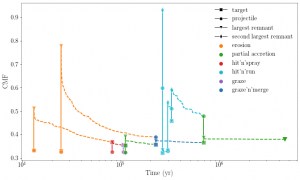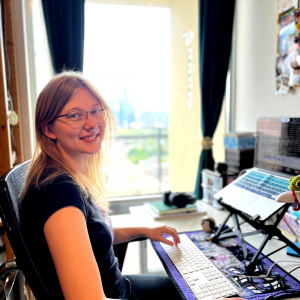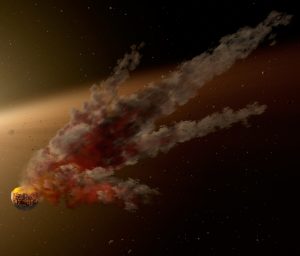Jennifer is a fifth year PhD student at the David A. Dunlap Department of Astronomy and Astrophysics at the University of Toronto, studying the formation of exoplanets.
She received an Honours Arts & Science and Physics degree from McMaster University, where she participated in research projects on stellar formation and stellar clusters.
How did you first become interested in Astronomy and Astrophysics?
Throughout my childhood my Mom would take us out at night to look at the stars and point out the constellations she knew. I gained my love of the beauty of space from those nights. So when I had the option to do research about space during my undergraduate degree, I jumped at the chance — and here I am.
Can you tell us a little bit about your specific field of research?
I study the formation of rocky planets, from the more massive super-Earths to our own solar system planets. I simulate the giant impact stage of formation, where the partially-formed planets collide to form the final planets we see today. Previous work has shown that individual collisions can change a planet’s composition, and rocky planets are observed to have a wide range of compositions. My goal is to see if we can replicate the observed range in rocky planet compositions with giant collisions during the formation process.
What’s the most exciting thing about your research?
What excites me most about my research is running simulations and watching their evolution. It is still so amazing to me that we can model the motions of thousands of bodies as they form a planetary system. This process takes millions of years and plenty of complicated physics in real life, but we can do it over and over again and visualize them on a more human timescale in these simulations!
What do you hope will be your next step, professionally?
My next step will be to write my thesis and graduate. While I love astronomy, it can be difficult to get a job in the field, and I have a wide range of interests that extend beyond planets. Once I graduate, I plan to look for jobs in data science and visualization, as some of my favourite parts of my work have been finding new ways to visualize and understand a problem.

The change in composition of a planet in one formation simulation over time. The different colours represent different types of collisions, with orange being the most destructive. Credit: Jennifer Scora.
_________________________________________________________________________________________



